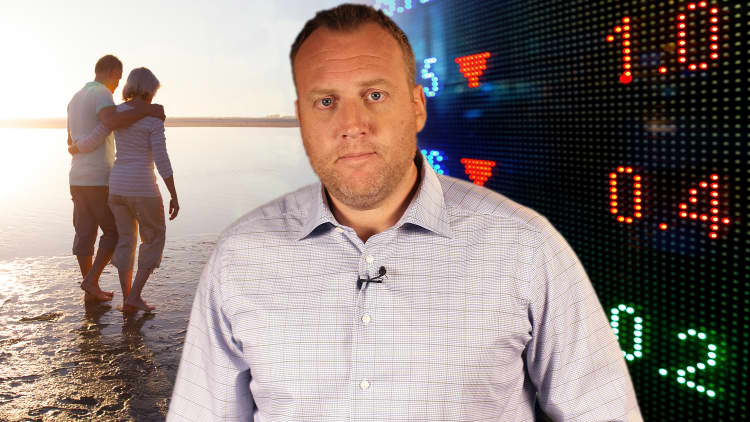One of Wall Street's top Apple analysts doesn't think the recent rally in the stock is justified, telling clients that the equity remains as expensive as ever.
In a note to clients Thursday, Bernstein's Toni Sacconaghi pointed to the stock's 17 times forward price-earnings ratio.
"Apple is now as expensive as it's ever been since 2012, when it exited its hyper-growth stage amid the early years of the iPhone," he wrote.
Sacconaghi, rated consistently the No.1 Apple analyst by Institutional Investor magazine, has a market perform rating and $190 target price. Apple shares fell 2.5% to $197.59 on Thursday morning. They have soared more than 43% since its trough in January.
Sacconaghi wrote that while he understands why some investors would snap up the stock and treat it like a high-end consumer brand, he's still a little skeptical.
"While we are constructive on the 'consumer brand' thesis, we remind investors that Apple remains a fairly cyclical stock with over half of its revenues derived from a single mature product, the iPhone," Sacconaghi said. "Moreover, unlike luxury handbags, jewelry, or even dish soap, the iPhone is inherently subject to replacement cycle, commoditization, and disruption risk."
Bernstein's price target represents 6.3% downside over the next 12 months.
"The most comparable luxury category to hardware would be the Swiss watch business, which faces similar problems with infrequent purchasing cycles and disruption risk (by the Apple Watch, ironically)," he added. "We continue to believe the risk-reward on Apple remains neutral today."
Even accounting for strong revenue growth in its services business — a priority for the company — Apple's multiple still looks a little inflated, he said.
"Apple's services clearly remain tied to the hardware installed base — if consumers were to ever stop using their iPhones, they would intuitively stop using the App Store as well, Sacconaghi wrote. "While [we] do not expect the iPhone to be disrupted for the foreseeable future, this consideration should nonetheless have implications for the terminal value one ascribes to Services."



